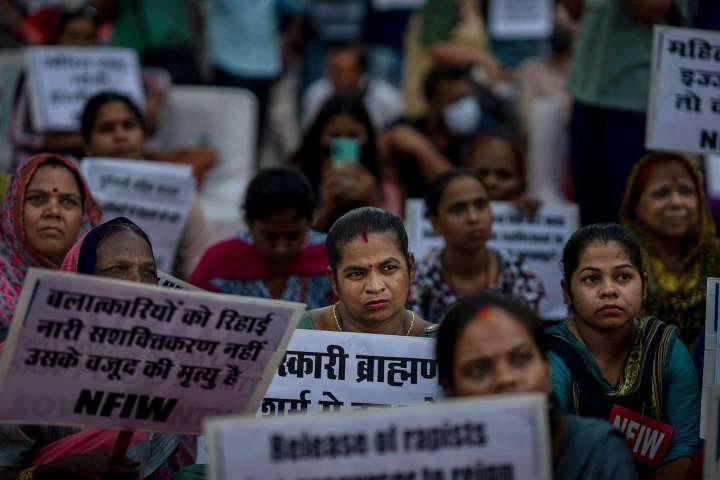In the United States — where reproductive rights are under attack and there has never been a female president — people routinely make assumptions about India’s women. For years, I have argued with foreign correspondents who have looked at us through the prism of subjugation and stereotypes, pointing out that our complex realities defy orientalist tropes.
India’s women have been betrayed — by violence and shameless politics

But now, I am speaking out as an enraged Indian woman. We have been betrayed, not just by the unsparing use of rape as a weapon of intimidation and violence, but also by the way our bodies have been turned into political battlefields.
This week, two teenage Dalit girls were raped, strangled with their scarves and hung from a tree in a village in Uttar Pradesh, India’s most populous state. I wish the ensuing outcry reflected collective, public fury at such crimes. Unfortunately, all I heard was the cynical cacophony of politics.
For the opposition, this was a chance to criticize the administration of Uttar Pradesh Chief Minister Yogi Adityanath, the rabble-rousing Hindu nationalist monk who is a rising star in the ruling Bharatiya Janata Party. Meanwhile, his far-right supporters online felt no shame in claiming some coarse victory because five of the six men arrested are Muslim.
No one cared about the girls. And, depressingly, this case is just one of many recent examples in which victims and survivors are cast as headlines but treated as afterthoughts.
Ironically, it all started on Aug. 15, India’s Independence Day. Eleven men who had been convicted of gang-raping Bilkis Bano, a pregnant 19-year-old woman, in the state of Gujarat in 2002 walked out of jail to garlands and sweets. Their early release was made possible after one of the convicts petitioned the court, and a panel set up by the Gujarat government made the recommendation. A BJP state legislator on the panel told Mojo Story, the digital platform I run, that he believed the men “were Brahmins” — referring to caste — and “men of good values.”
His words of praise were for men who had also gang-raped Bano’s mother and sisters, forcing them to witness each other’s assaults. While Bilkis lay on the floor bleeding, her arm broken by the mob, they took a stone and smashed the head of her 3-year-old daughter. The Bombay High Court called what happened a “massacre.” In 2019, India’s Supreme Court awarded Bano compensation, reminding the Indian public that she had been raped 22 times.
As a young reporter, I met Bano in a relief camp hours after she had been assaulted. Her arm was in a cast, and she spoke softly under a makeshift tarpaulin sheet, illuminated by the low flicker of a kerosene lamp. The rapists, the men who killed her daughter, were her neighbors. They used to buy milk from her. It took her 17 years to get a measure of justice. Her husband Yakub told me they had “just about started living again” when the men walked free.
As new petitions were filed in court demanding the men be sent back to jail, Mojo Story revealed that the convicts are already untraceable. Yet only a handful of BJP figures spoke up for Bano.
Then, a few days later, a teenager in the state of Jharkhand was doused with gasoline and burned alive while she slept. The accused assailant even smiled for the cameras as the police took him away. But because the state is governed by another party, this time it was the BJP leading the charge, while those who had been voluble in demanding justice for Bano were more muted. That lasted until another horrific account emerged from Jharkhand about the torture of a tribal woman, who was allegedly beaten with hot pans by a now-suspended BJP state leader.
India’s politicians — both men and women — tend to speak out about the abuse of women based on the governing party in that jurisdiction, the religion or caste of the perpetrator and, sometimes, the religion or caste of the victim. Of course, religion and caste must be considered alongside gender for a deeper understanding of structural inequities. Yet fights over dead women and traumatized girls should not become a gladiatorial sport linked to politics and ideology. All women deserve justice; every assault is worthy of our rage.
The government’s own data demonstrates that all states are sullied when it comes to women’s safety. While BJP-ruled Uttar Pradesh reports the highest number of crimes against women, Rajasthan — governed by the opposition Congress Party — reports the highest number of rape cases.
On issues such as rape and violence, Indian women cannot afford to remain divided by party affiliation, religion and caste identity, or ideological loyalties. This should be a moment of unity — and reckoning.






